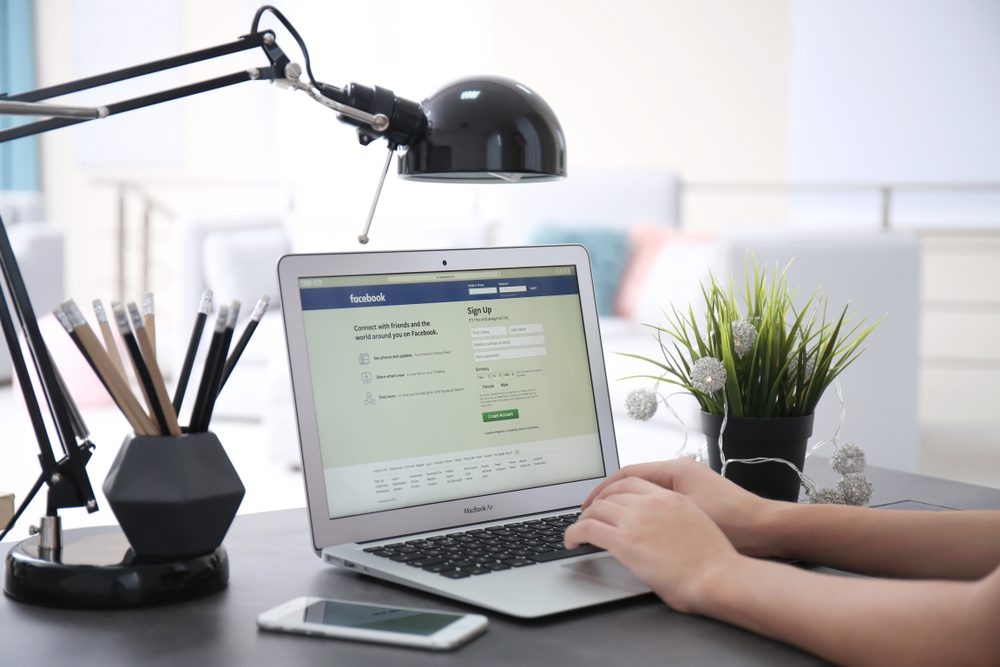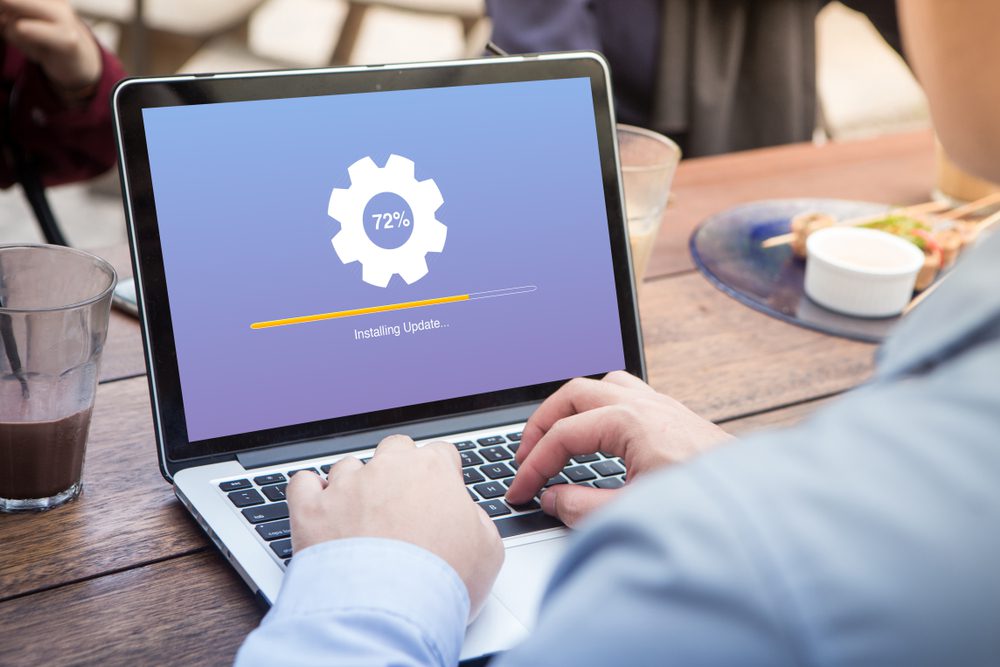
If you’re working a desk job like me, you’re probably spending most of your time on your work computer. You sometimes forget it’s not your personal computer and do things you shouldn’t do at work, which could easily turn against you and even jeopardize your career. If you want to separate your private life from your professional one and keep it professional at all times, avoid doing these 16 seemingly harmless things on your work computer!
Store personal passwords
Having to remember and constantly write your passwords can be quite annoying, not to mention you sometimes don’t remember them correctly. So, what could be the harm in storing them on your computer?
Well, according to Chelsea Brown, CEO and founder of Digital Mom Talk, “almost every employee has ordered or checked on something personal at work. The thing we don’t remember is if we left that login information on our work computer.” This means that anyone who has access to your computer also has access to everything you logged into from bank accounts to social media accounts and the like.

Online shopping
How many times have you taken a break from work and started scrolling your newsfeed or email only to find a super cool flash sale? I, for one, lost count of all the Cyber Mondays or Black Fridays! What I didn’t know back then was that online shopping from the work computer is a big no-no. “I would strongly advise against using your work computer to go online shopping. Doing so could put personal information, like your credit card number, at risk on a device that others have access to,” says Dana Case, director of operations at MyCorporation.com. Not to mention, online shopping at work does not exactly spell professional behavior.
Use incognito mode
“Think you’re being stealthy by going into Incognito mode? You’d be surprised by how many people know about your little stunt,” says Darrin Giglio, chief investigator at North American Investigations. “Long gone are the days of ‘I’ll just delete my history after I’m done.’ Whether you’re in the office or at home, it’s important to remember that your employer can remotely access your Internet browsing history.”

Job hunting
Looking for a new job and interviewing while already working a full-time job is difficult and tricky. However difficult it might be, this does not mean it’s ok to do it from your current work office.
“The IT team can easily see all your web activities and you may have to explain yourself to HR as to why you’re using the time you’re supposed to be working to seek other employment. This could result in disciplinary action which could result in termination,” says Marcus Anwar, co-founder of OhMy.ca. Better use a Gmail or other personal email address for all your non-work-related communications.
Download unknown files
It might seem harmless. You receive an attachment from a friend and want to see what’s that all about. But downloading it on your work computer is not the best idea.
“Don’t download files from unknown sources or websites, that goes for personal and professional use,” says Mike Falahee, owner and CEO at Marygrove Awning Co. “There could easily be a virus, malware or ransomware contained within these nefarious files. Worst-case scenario, it could shut down your whole office system, costing the business unlimited amounts of lost revenue from not being able to function.”

Browse social media
Let’s face it! Everyone is doing it! But this does not make it OK. Many employers are against their employees browsing social media because it could lead to lost productivity, security breaches and even online harassment of fellow employees in the workplace.
“Using social media on a work computer is career suicide,” says Kenny Trinh, managing editor of NetBookNews. Your Facebook or Twitter posts can be left for another time, preferably when you’re not at work.
Store personal files
Is it a good idea to store personal files on your work computer? While it might be convenient and tempting, “as a general rule of thumb, keep all your work and private computer use separate,” advises Michael Kerr, an international business speaker and author of “The Humor Advantage”.
Mostly because it is not safe. “Remember that you’re not the only person who has access to this computer. So expect some people to take advantage of this information like using your bank account for their own personal gain,” warns Trinh.

Stream or download videos
Want to stream an episode of Grey’s Anatomy on your work computer during your lunch break? You might want to use your phone for that. That’s because while you happily stream Netflix, you might affect the server and work bandwidth and slow everyone down in the process. According to Neal Taparia, partner at Solitaired, “with the right IT set up, you can get caught.” Way to get yourself fired!
Message people
Another thing Taparia says it’s not appropriate to do during working hours is messaging people outside of the communication systems of your company. “If you’re going to have a personal conversation with a friend, it’s best to leave it for after-work hours,” advises Taparia.
Plug-in USB drives
You may have heard it’s unsafe to plug-in strange USB sticks into your laptop or desktop computer, much less your work computer. This warning is as much repeated by IT specialists as it is ignored by most people.
“Don’t stick USB drives in the work computer unless you know what is on them,” says Morgan Taylor, CMO for LetMeBank. “This is another common way keyloggers sneak into company systems. They can also be hidden in keyboards, so don’t use any keyboard that isn’t approved, or at least purchased directly from a shop.”

Install remote access software
Remote access software can help you many situations, but it can also represent a risk for your work computer. “Any remote access to company systems should be properly allowed and sanctioned. Never be tempted to try to install apps like LogMeIn so you can work from home. You could potentially create a disaster in terms of data security and compliance,” warns Taylor.
Use file sharing sites
“Good IT teams will put mechanisms in place to prevent file sharing systems like BitTorrent, uTorrent or the Pirate Bay from being used, but you should still help them out and not try,” says Taylor. If you aren’t careful, file sharing can subject you to spyware, viruses, Trojan horses, worms and identity theft. “It should be no surprise that Shadow IT (employees using IT solutions that are not officially approved by their company), combined with the carelessness of corporate employees, can put company data at risk and lead to dangerous consequences,” said Alex Gorbansky, CEO and co-founder of a document management company.
“If you want to download music and movies with questionable legality, please do that at home.” It’s the best way to avoid getting a virus that might not only affect you but your fellow co-workers as well.

Use dating sites
Just like social media, dating sites are often accessed by people while at work, during their lunch or coffee breaks. If you Tinder matches cannot wait until you wrap up your tasks for the day, at least “use your own phone to conduct your personal life,” says Ben Taylor, founder of Homeworkingclub.com. “Email filters and anti-spam systems often pick up messages based on certain keywords, so there’s a chance your intimate communications could end up in the IT department and not on your own computer!”
Connect to a public WiFi
No public WiFi network is utterly secure, which makes it even more dangerous if you connect your work computer to it.
“If you connect your work computer to such networks, you will end up leaking highly private work documents and data that will get both you and your employer into trouble,” says Reuben Yonatan, founder and CEO of GetVoIP. “The only situation under which you can use your work computer with public connections is if you have a good VPN (either personal or one provided by the employer). VPNs redirect your traffic through secure servers so there is no danger of leaking proprietary data.”

Gossip
You might not see anything wrong with gossiping from time to time but there’s really no positive outcome to gossip in the workplace. “Anytime you gossip about someone over email, Slack, or Google hangouts, your company has proof of that in writing. Unprofessional behavior reflects poorly upon the employee—and that includes talking about people behind their backs,” says Emily Lawrence, communication specialist at CenturyLinkQuote.
Work for your side-gig
You have every right to have a side-gig and boost your income if possible. But when your side-gig affects your productivity at your full-time job, things might take a different turn. To make sure you’re not jeopardizing your current job but still make some extra money with your side job, do it in your free time. “Employers are very particular about keeping tabs on workers’ productivity,” says John Stevenson, head of Top VPN Canada. “Some companies may allow their employees to take side jobs but they must do so outside of work hours. Their salary doesn’t cover doing jobs that are not your company’s and using their equipment to do your second (or third) job’s work counts as rude behavior, if not an insult.”























